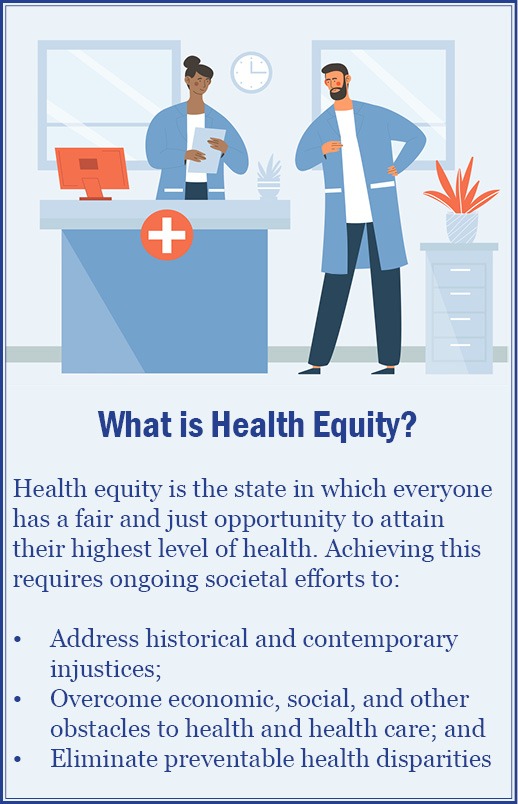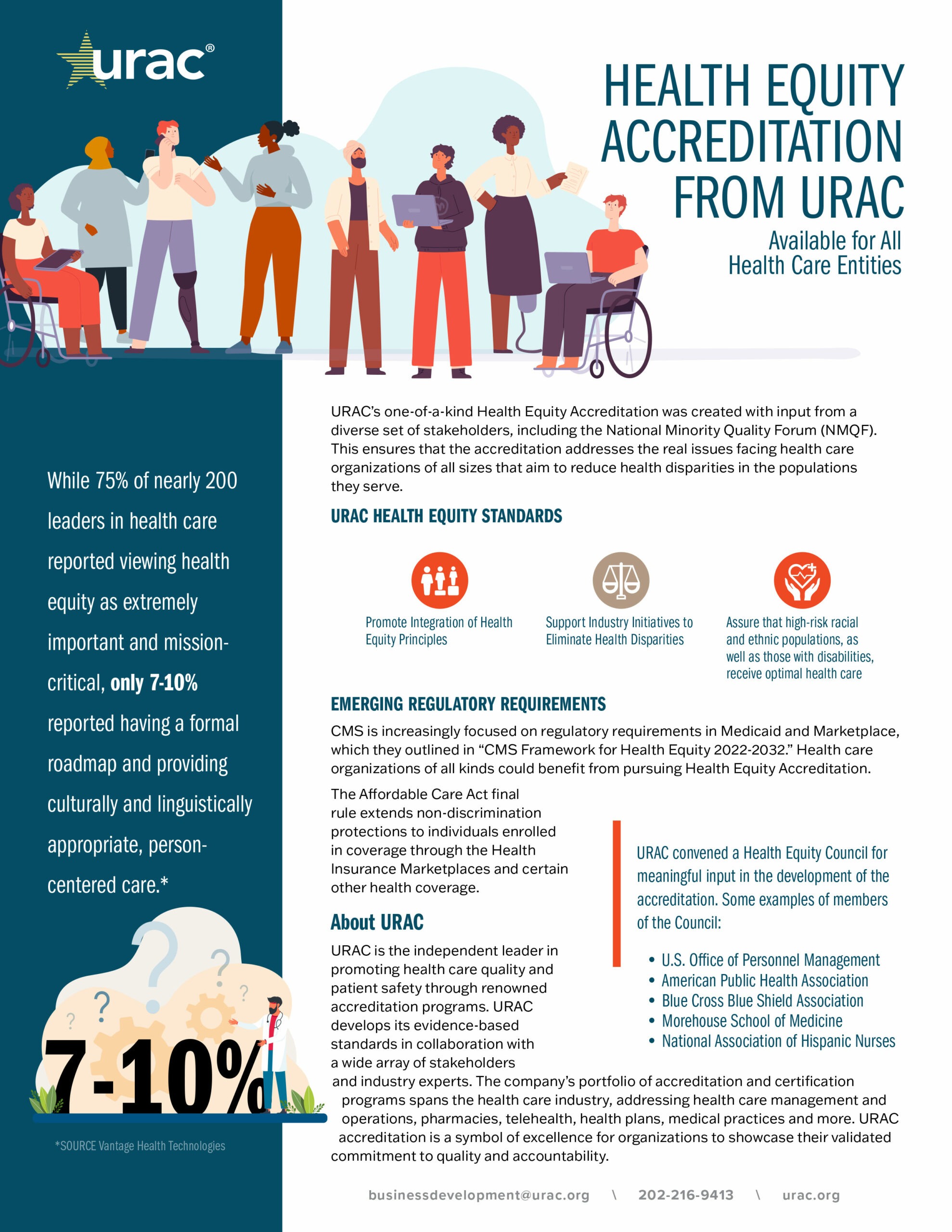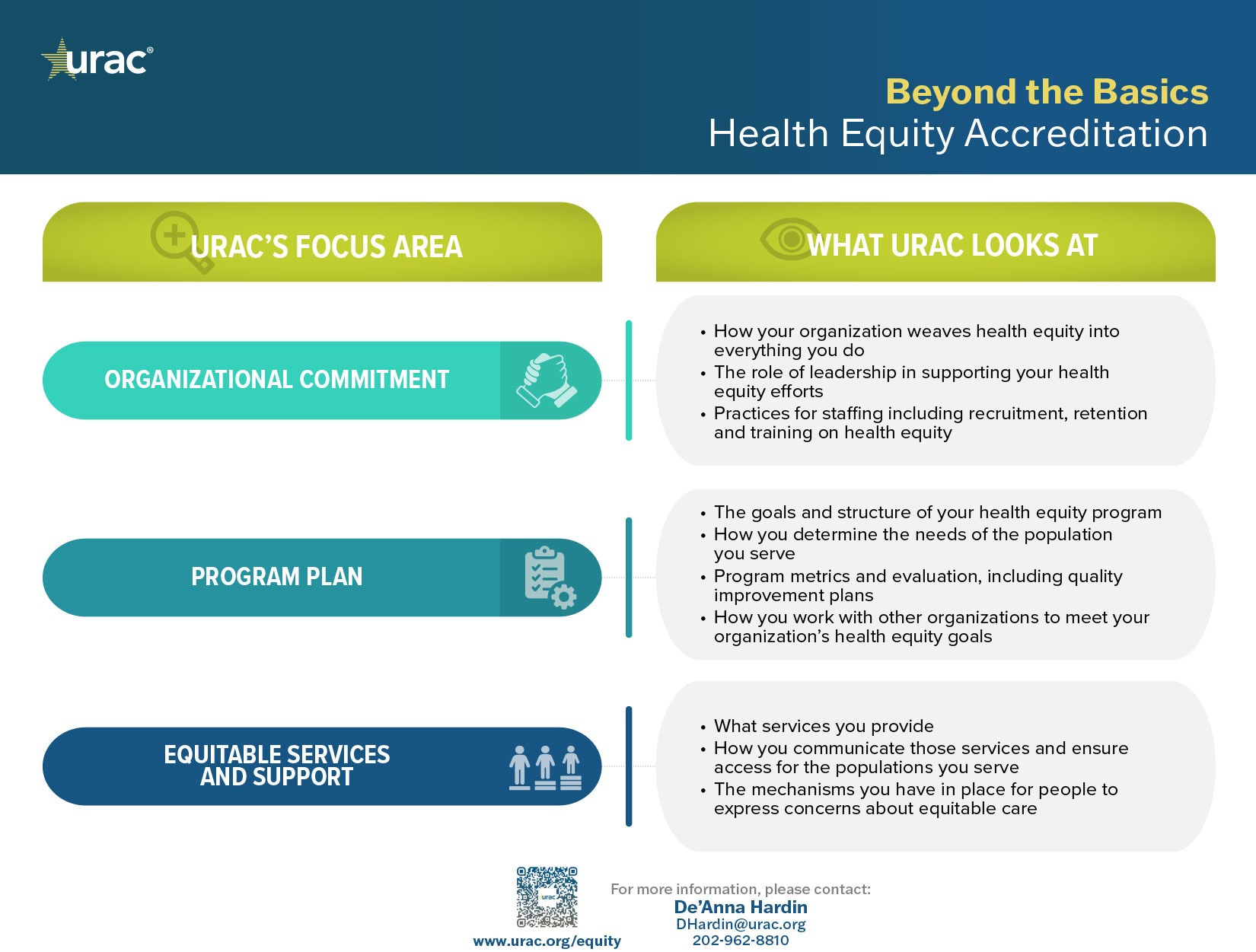Quick Links
3 easy steps to begin your URAC accreditation

URAC Health Equity Accreditation
Improve outcomes by ensuring optimal care for all
URAC developed our Health Equity Accreditation in collaboration with the National Minority Quality Forum (NMQF) to allow health care organizations of all kinds to highlight their commitment in addressing health disparities within the communities they serve.
For multidisciplinary input on the Equity Accreditation standards URAC convened a Health Equity Council, made up of 25 organizations, including:
- U.S. Office of Personnel Management
- American Public Health Association
- Blue Cross Blue Shield Association
We created our Health Equity Accreditation programs to be applicable for all health care organizations if they:
- Provide health care services
- Provide health care management services
Organizations do not need to have a prior URAC accreditation of any kind to pursue URAC Health Equity Accreditation.
Focus Areas
The three focus areas for URAC’s Health Equity Accreditation are designed to:
- Promote Integration of Health Equity Principles
- Support Industry Initiatives to Eliminate Health Disparities
- Assure that high-risk racial and ethnic populations, as well as those with disabilities, receive optimal health care
You can see the Standards-at-a-Glance here for more information.
Important Terminology in Health Equity
Health equity is the continual process of assuring that all individuals and populations have optimal opportunities to attain their highest level of health.
Health disparities are inequitable differences in health outcomes and access to health care that may be preventable and are rooted in economic, social, political and environmental impact.
Social determinants of health are the non-medical factors that influence health outcomes. They are the conditions in which people are born, grow, work, live, and age, and the wider set of forces and systems shaping the conditions of daily life.
Be Better Prepared
At URAC, our accreditation process is more than collecting metrics and checking boxes. Only URAC offers accreditations as a collaborative, comprehensive learning experience, driven by your organization's specific needs.
Download the URAC Health Equity Accreditation Standards-at-a-Glance here.
What does it take to get accredited
What To Expect
In six months or less, URAC will collaborate with your team to create a flexible framework for continuous improvement without prescribing how to meet those standards. URAC’s approach stimulates innovation across the continuum of care through email, conference calls and web conferencing.
CMS Requirement
CMS is considering regulatory requirements in Medicaid and Marketplace as outlined in its “CMS Framework for Health Equity 2022-2032”. Health care organizations of all kinds could benefit from pursuing Health Equity Accreditation.







